|
Happiness is probably one of the most important words in the english language. It points to something not always so easy to define, yet directly recognized by everyone. Without happiness, whatever we do is never quite enough. With it, everything is complete right now. Without happiness, we are easily persuaded by dark inner voices that what we are doing is wrong, or that something is wrong with us. With it, the critic is silenced by the singing of the birds, the joyful whispers of the trees, or the peaceful bellows of our breath. Without happiness, we will see a thousand and one promises of salvation in something more, different, or better. With happiness, we will see that this very life and this very moment is the fulfillment of the one promise that matters most. Without happiness, everyone will appear as imperfect and in need of our correction. With it, everyone is seen to be beautiful and whole, even as they play the game of getting better, or not being enough. Without happiness, everyone is a potential threat and in need of our caution. With happiness, everyone is one of Us, and not an “other.” When we experience the presence of Happiness, we might notice that: There is nothing we need to seek, or not seek. There is nothing we need to know., or not know. There is nothing we need to have, or not have. There is nothing we need to be, or not be. When we are truly happy, we are free. Is there a single and simple promise you can make to yourself that turns on an inner smile, and lights up your life regardless of how this shadow play unfolds?
0 Comments
Most people like the idea of unconditional love, but not the reality of it. Most people are happy to receive unconditional love on the one hand, while on the other hand are quite reluctant to extend it. Because to love unconditionally requires that we set aside what is personal. What is personal is conditional. Because to love unconditionally requires that we offer our blessing to everything and everyone, including ourselves. Whether we think they deserve it or not, or we deserve it or not. What if it requires you to love what you think you hate? What if it requires you to love your political adversaries as well as your friends and family? Your pain as well as your pleasure? Your failure as much as your success? Your illness as much as your health? And your death as much as your life? What if it asks you to be okay with poverty, crime, and war? Could you allow inequality and injustice to have a place at Love’s table, where all are welcomed as the guest of honor? Could you accept as loveable, the faults and sins of character, the moral shortcomings, the outrageous betrayals? What if unconditional love does not offer you a path to becoming a perfect person, but a path to learning to perfectly love the person you are? If you are unwilling to Love everything, is it possible that what you have been calling love is something else altogether? Unconditional Love may just be the radical capacity to be at peace with things as they are, while shining peace upon them. Seeing them for what they are, while not expecting them to be something they are not. Love does not take away our responsibility to act in accordance with our conscience. Nor, does it strip away our discernment between good and evil, care and neglect, genuineness and deceit. Love asks us to play our part in bringing some measure of heaven to earth, while understanding that the conditions of earthly existence are inherently difficult, unequal, and unfair. Acceptance this deep and inclusive is not compassion's absence, but the very ground of its authentic presence. In truth, unconditional love is more often found when passing through some great ordeal, than inside a hallmark card. It is far more likely to be realized in the midst of darkness and pain, than in the fresh delight of lovers, or the ease of things going right. Ordeals require us to face our pain and our resistance to pain. And, if you cannot say you are truly happy and deeply at peace, then the ordeal of the human condition has found you. This ordeal we have all been gifted has just enough pain to break us open to what is beyond it. If we are open to the grace it holds out to us, this initiation by fire can liberate our half-heartedness, and reveal a wet-eyed or deep-sighed acceptance of what is, as it is. And in that acceptance, there is a dissolution of our sense of being something "other" and a dawning realization of the unchanging love that is the true nature of all that appears to change. And in this realization, the world is ennobled and seen as perfect, for it has played its perfect part in making the presence of Love tacitly known. For the first time. Again. Threat If we perceive conflict and uncertainty as a threat to our personal or collective survival and well-being, we are priming our bodies to be always ready to attack, be on guard, or hide. It is not sustainable to live this way ongoingly without paying the price. Even more significantly, when this happens, our faculties of critical thinking, intuition, creativity, and compassion often go right out the window. These are capacities we dearly need during conflict or uncertainty. Instead of living from and expressing the qualities of our higher nature, we are more likely to express our lower nature's qualities. To live from what is best in us when it is hardest to do so, we must practice this way of being every day. Then, responding to apparent threats with skill and compassion becomes our default response to life’s difficulties. Ironically, if we want to embody what is best, we must also be aware of and skillfully relate to what is worst. In other words, we must be willing to look at our fears, doubts, grievances, aggression, desire for security, etc. We can do this. What else could be more important? Challenge Current happenings in our world certainly give us plenty of opportunities to become aware of what lies in our shadow. We can choose to welcome the conflict and uncertainty of our time as a challenge. We can declare ourselves up for whatever this brings to our door. Then, we can lean into what life is presenting to us personally and collectively. We have the courage, strength, and determination to persevere. We only need to affirm this to be true, because it is. When challenging moments present themselves, my partner and I like to remind one another that “We can do hard things.” There is great power in this simple shift in perspective because it taps into ancient physiological mechanisms, and inherent spiritual truth. We can acknowledge our resolve: “I am here, and I am willing to meet this challenge head-on." This stand moves us from being involuntarily drafted soldiers in a fox hole fearfully fighting for our lives to warriors who have been preparing their whole lives for just this moment. This moment is calling on all of us to show up as our best selves. Let’s rise to the challenge! Opportunity Once we have awakened the courage to welcome challenges, we may be ready to revive our capacity to envision new possibilities for ourselves and everyone in our circle of influence. When we are called to engage with life as a beautiful game, we can use everything for good. In the relative world of circumstances, we can play our part to make things as good as we can dare to make them in our own lives and in the lives of others whom we influence. Perhaps the opportunity that shines the brightest for lovers of truth is to use every appearance of threat as an opportunity to do the sacred work of forgiveness, understanding, and surrender. In this, we return again and again to the unconditional, to what really matters, to the mystery of our very existence. We are wired to err on the side of perceiving people, things and events as threats, even where there are none. However, we can choose to shift our perspective to see these same happenings as a challenge we are fully capable of meeting, and even as an opportunity that serves the realization of what matters most to us.
If someone told me that they "loved suffering" when I was a young man, I would have thought them a little strange. In my greener years, I tried to avoid fire and seek out the cool comfort of water. But my head kept popping up in the fire. After getting burned enough times through ignorance of this seeming contradiction, I learned to stop resisting the fire and to enter it willingly. Willingness revealed this strange paradox to me. True peace and more was hiding within the flames. Yes, of course, Love includes suffering. To love suffering is not the same as liking it. To love suffering is not the same as wallowing in it. To love suffering is not something we will likely be able to "do.” However, we can be willing. Willing to do our best to meet our pain directly and nakedly. Willing to set aside, even for a moment, our assumptions about what we think it means. As well as any fear we may have of it, or impulse we may feel to get rid of it. Willing to set aside our ancient reflex to run from what hurts. Allowing our reactive mind to pause for a moment. As we make contact with our pain and suffering, perhaps we say hello, respectfully, for the first time. Maybe we can recognize that it wants to protect us, not harm us. This moment of contact, free from our habituated refusal of its presence in our bodies, minds, or hearts, is a moment of loving our suffering. This love heals. Not by removing something poisonous, but by including something that is part of who we are. This love transforms. Not by finally fixing the wound we imagined was proof of our inadequacy, but by unburdening us of our judgment of it, allowing us to bless and include our pain as part of the totality of Life. Paradoxically, when we learn to suffer well, our suffering ceases to be suffering altogether. We may still appear to be feeling a painful experience, but we are genuinely and deeply happy none-the-less. For me, walking on water pales compared to this ordinary miracle. It is accessible to anyone who has at least moments of suffering, moments of lingering unhappiness, that can provide an opportunity to practice this form of water walking. When we allow ourselves to open 100% to what we tried to push away just a moment before, we may be surprised by what we find and what we don't find. Beyond the hard shell of our contraction against pain, there is freedom bigger than the sky. There is blissfulness sweeter than honey. There is a hallelujah that springs from our hearts if we let it. Because when we know in our bones that nothing can separate us from Love itself, we also realize that we are that Love. Just as we are, we are part of the Wholeness of this Greater Life and Love, part of this Miracle and Mystery of Being. As I see it, there are two sacred opportunities in a human lifetime: 1. The opportunity to live authentically and to embody the wholeness and integrity of your unique individuality, and 2. The opportunity to realize the perfect Love that transcends and includes your human expression. In my experience, the pathway to both is made from the solid ground of essential capacities that are intrinsic to us all, which we activate through the catalyst of courage. The courage to...
The courage to...
The courage to...
5 things to know about emotions that could make a difference in your life: 1. Emotions are completely natural. They are not anything to feel ashamed about! Many of us have come to believe that acknowledging, feeling and expressing a particular emotion is wrong, dangerous, or a sign of being immature or unspiritual. This makes sense if we have a history where some if not all of our emotions were judged, feared and suppressed by parents, teachers or peers. This tendency is further reinforced by gender stereotypes in films and other media. For example, the lead man who is tough and powerful, but insensitive due to being out of touch with his more vulnerable emotions. Or the lead woman whose femininity and emotionality is associated with her attractiveness, yet who is unempowered due to unintegrated anger. While emotions are natural and normal, so is reacting to them with suppression, judgement or indulgence. So lets add that one too. To react to the presence of emotions is entirely normal, and again nothing to feel ashamed about. That said, feeling ashamed about reactivity to emotions is also very common. 2. It is possible to have a healthy relationship with all of our emotions. The definition of “healthy” will depend on the context, culture, etc. With respect for those differences, I would say a healthy relationship with emotions includes the following: • Emotional Awareness: A developed capacity to spot and name the specific emotion/s that are present in one’s experience. • Reactivity Awareness: A developed capacity to spot when we are reacting to our emotions, and how we are doing it. As an example, we may react to anger by suppressing it, feeling afraid of it, judging ourselves for feeling it, by merging and identifying with it, or indulging in it through unhealthy expression. • Discernment: The ability to discern between a call to action, the need for appropriate expression, and a call to the inner work of awareness. Sometimes our anger is informing us of a limit we need to set with someone, sometimes it is unfinished business from the past coming up to be welcomed and related to (by us) compassionately and skillfully. • Emotional Responsibility: The willingness to take responsibility for understanding, working with and resolving our own unhappiness. This starts with the view that other people or situations do not “make us unhappy,” but that it is our response or interpretation that does. (Please do not put this on anyone else. If someone is working through serious trauma, such a viewpoint may only trigger more shame and be harmful rather than helpful.) • Appropriate Expression: The ability to communicate emotions in a way that is effective, respectful and appropriate to the situation. To do this well likely requires a significant mastery of all of the above. 3. Each category of emotion such as anger, sadness, fear, shame, joy has within it a very rich palette of feelings and emotions that can vary greatly in intensity and shade. Consider a robust color palette that can be created from just a few primary colors. Consider the difference between mild irritation and homicidal rage, or between feeling a subtle sadness versus deep and unbridled grief, or between feeling delighted and feeling ecstatic. 4. Being intimate with our emotions can be a deeply spiritual practice. If you are interested in Awakening, you are ultimately interested in awakening from the illusion of a permanent, separate self that we may call “ego.” Transcendence itself is not difficult and can happen in an instant. However, the complete undoing of the illusion of our separateness requires much more. Noticing unhappiness and working through our emotional reactivity offers a cell-deep way to undo more of what is mistaken and reveal more of what is true and real and authentic. 5. Emotion does not equal unhappiness. We can experience emotions without unhappiness. However, if we feel unhappy, there will be emotions present, consciously or unconsciously. Making this distinction opens the door to discovering that it is possible to be happy with the experience of an emotion, even as it is noticed, felt and expressed. I encourage you to consider this possibility without making it a “should.” If you are on a path of deepening spiritual and psycho-emotional awareness, this is one of the fruits you can look forward to. 5 things to know about shame that could make a difference in your life: I believe that shame is an emotion that affects everyone deeply. Even if you don’t personally identify shame as being on your “top hits” list, it might be playing subliminally in stealth mode. 1. It is quite normal to feel shame. It is not anything to feel ashamed about! And, there's the rub. It is incredibly common to feel as if shame itself is something we have to hide from ourselves and others. To feel ashamed of our shame. It may go something like this… “If I acknowledge that I feel shame, then the very thing I feel ashamed about will be confirmed as the truth about who I am. If I hide this feeling, then others won’t see how deficient I am. Then I won’t have to feel how deficient I am.” However, feeling this way is a pervasive experience for human beings living in the 21st century, at least at some point in our journey. The irony is that unless you have unsupportive friends and confidants, your admission is more likely to be seen as an inspiring demonstration of courage than as evidence of a flawed or defective character. 2. Shame can be experienced as a positive and helpful emotion when we have a healthy relationship with it. When we don’t hide our shame about something we have done or not done, then it can be an opportunity for reconciliation with ourselves or another. If we have not lived up to our own reasonable values, it is healthy and useful to feel some shame about that. The purpose is not to punish, but to bring awareness to the fact that we have done something that is out of integrity for us. Then, we can clarify what is important to us and recommit to living in a way that is a demonstration of our values. If you are willing to see shame as a helpful emotion, then admitting to it can be an important step in deepening integrity and forming strong and intimate relationships. 3. There is a difference between feeling ashamed about something we have done and feeling ashamed about who we are. It is healthy to feel ashamed about something we have done that falls considerably short of what we rightfully expect from ourselves. However, if our expectations for ourselves are unreasonable, then our shame will be imbalanced. If our expectations are too high, we will be living with the tyranny of inner criticism. If they are too low, we will live with the pain of a life lacking adequate meaning and challenge. On the other hand, when we feel ashamed about who we are, we are no longer experiencing shame as a useful emotion, but rather as a defining truth about the nature of our very essence. Many years ago I labeled this phenomenon the “ego deficiency trance,” to denote that while we can experience and believe that we are deficient, inadequate, not good enough, unloveable, etc., this perception is illusory and not a fundamental truth. Using the label of “deficiency trance,” or “shame” can be a way of noting when it is present in our experience. This provides an opportunity to recognize that it is something we are experiencing, something we are believing, but not what we are. 4. Discovering the origin of shame’s presence can be useful. If you are experiencing shame or guilt\* and you check for its source, you may find a very specific and appropriate reason for it. In that case, you can feel the shame or remorse or regret, take corrective action if necessary, and come back into alignment with your values and intent. This is assuming that your emotional response to an error in your behavior is balanced. As mentioned above, if our expectations for our behavior are unreasonable and lean to either perfectionism or indulgence, then our feelings of shame (or guilt, remorse, regret) about the situation may be way over the top or utterly absent. If you are experiencing what I have called the “ego deficiency trance” or “deficiency trance,” or what has also been referred to by many as “toxic shame,” then you are believing on some level that who you are is fundamentally flawed. While I believe that in our culture, this is ubiquitous, I also believe that for most people it is unconscious. The good news when it is conscious is that it is coming to the Light of awareness to be healed, to be liberated. The origins for this type of shame or guilt applied to our very being, not just to specific actions, has deep roots. Deeper than we can imagine. One frame we can look to for the roots of this perceived flaw in our being, is through childhood conditioning. If you recognize this as an issue, learning more about how you as a child learned to believe that you were deficient, not good enough, etc., can be very healing. It can help to normalize these feelings so that they can be brought into the Light, and provide a foundation of insight that engenders understanding, empathy and compassion. If like Neo in the movie “The Matrix,” you choose to take the red pill and follow the white rabbit down the hole into a mind-blowing discovery of what “reality” is and what the “I” of our being really is, the origin of shame can be seen in an even more profound way. When we become aware of the difference between the mysterious and profound nature of our Essence and the survival program often referred to as “ego,” we can look to a spiritual frame to point us to the possible origins of this internal process mistakenly assumed to be “me.” This line of inquiry, like the one in the paragraph above, is worthy of much more consideration than one paragraph of words. Keep that in mind as you read on. Let us consider for now the possibility that in truth you have never been other than Spirit. You can never truly be separate from your Divine origin. And, in truth, you are always and already whole, complete, and perfect. However, endowed with unlimited power, you have the power to dream into being anything. Right now, you, together with everyone else, are dreaming this dream of duality, limitation, and separation. Together we are dreaming we are separate beings, separate from each other and from heaven and earth. What if we could uncover the first instant of imagining ourselves to be a separate mind, soul, or body? What if from the point of view of the ego this was believed to be a great sin against our Divine Parent? What if we carried forth an unconscious shame or guilt from this original conception of separation? And, what if it was possible to offer this original Shame to the Light of the Source itself, from which no blame or indictment is possible? I encourage you to meet yourself right where you are in relation to your understanding of shame. And, you may not need to know anything more about its origin. 5. It’s useful to assume that shame has a good intention. If we assume that our shame has a good intention, we can learn to first look for how it is trying to help us. When we see that it is attempting to help us rather than hurt us, we understand where it came from, and we can allow it to be held in the healing presence of compassion. Mild shame is easy to understand in this way. The intention may be to let us know that we have done something that is either not in accord with our values, or not in accord with the values of our family or society. It is a feedback mechanism that allows us to make corrections to our behavior. Toxic shame or the deficiency trance may take a little more contemplation to unpack. But here is one example using the childhood conditioning model: A child is subjected to physical, sexual or emotional abuse or neglect. The child lacks the intellectual development that would be necessary to recognize that this abuse is a reflection of the parents immaturity, woundedness and inability to provide consistent and loving care. So they internalize the parents’ behavior as a reflection of who they are. And, even if they could realize the parents are at fault and not themselves, it may be easier for the child to live with the false belief that their parents are good, caring and capable rather than a more accurate understanding of harmful parenting behaviors. However, the cost of creating this more comfortable perception of their caregivers is to take on the cause for such treatment to be themselves. “I must be bad in order to be treated like this. It must be my fault, like they say it is.” When toxic shame is creating difficulties in your life, I recommend getting one to one support with someone qualified to help with this issue. However, for anyone on a path of deepening awareness, understanding the nuances of this topic, both conceptually and experientially, can be invaluable. * Note: Guilt is sometimes used as an equivalent to shame, and sometimes used as a composite of shame and fear. What if understanding and learning to embody and live from true happiness is the most reasonable, practical, and responsible activity we could possibly undertake at this time? This week, I will continue to explore the thematic elements of unconditional happiness, being “happy-with,” and the frame of seeing unhappiness as an unconscious strategy for getting something we want. Happiness can be a challenging concept to use in this context for many people and for many reasons. However, I choose to use it because I find it to be the most powerful way to locate hidden resistance to what is. It has finally become undeniable to even most in the mainstream that we are truly in a time of great crisis and great change. Happiness might seem to be an unreasonable, unattainable, inappropriate (or even selfish) aim at such a time as this. If you would agree with this consciously or unconsciously, I suspect that you might be missing a very crucial understanding of the true nature of happiness. Why do we value personal and environmental health, economic prosperity, equality, and good leadership? Values that are all being currently threatened. Ultimately, because we want to be happy and at peace, or we want that for those we love. And, as we actually experience happiness in abundance, we may realize we want happiness and peace for all beings, for real happiness rejects nothing and includes everything. Truly doing what we can to respond to the crises and challenges we are facing individually and collectively has two aspects. First is discerning what is ours to do and doing it. Second is doing what we must to return to the deep well within us from where ever-present happiness and peace spring forth. This is not a casual return, but a sacred return. It involves facing whatever we have turned away from. Owning what we have disowned. Feeling what we have refused to feel. And seeing what we have tried to keep hidden. This is often a painful process, and at times may require every bit of strength and courage you have to keep going. But what is the alternative? Look around at the insanity of the world we are now living in. What if this is the result of our collective refusal to confront our shadow? If we aim for true happiness, or true love, or truth itself (ultimately they are all one essence) we have to go back to our Source the way we appeared to leave it. We can unlearn the ways of unhappiness, unforgiveness, and the belief in separation. We can come home to our Self. I don’t know how this great drama of our time is going to play out, and I don’t believe anyone can know absolutely. But some constants will remain. Everything that is born will die. Everything we can know with our senses is temporary and ever-changing. And, who we really are is forever unborn, a silent witness to all of it. And, everything that happens in this human life can be the call to take a stand for what is most important, inside and out. Blessings on your sacred return. What does unconditional happiness mean at the deepest levels of our human experience? When we are willing to open to our deepest fears and pain without resistance, a paradox presents itself. In such a willingness, there is no suffering, there is no unhappiness, even as we bear witness to great suffering and allow it to be seen, felt, and allowed to pass through us. Like it or not, suffering is inherent to the human condition. Suffering’s appearance is a given. Consciously realizing that at the core of our being there is no suffering, is not. A wise person once said, “Ask and you shall receive, knock and the door shall be opened to you.” The elements that I teach concerning the true nature of happiness and the guide post of unhappiness are one way of asking and receiving. And, one way of knocking and walking through the doorway of our unhappiness into the open sky at the core of Being. True happiness is a state of being that is inseparable from our timeless nature. It is a quality of who we truly are. It can be reflected in our daily lives as positive emotions, pleasant sensations, or positive states of mind. But true happiness is both more than these states and independent from them.
I talk a lot about happiness and unhappiness because I have found that understanding and paying attention to both is one of the most potent keys to moving from unconscious suffering to the freedom of Awareness. There is so much to explore on this topic, that truly it is a life’s work. So keep in mind that I am only working with broad brush strokes here. Now, if you would indulge me for a moment: Let's say you accept the possibility that the nature of who and what you already are (beyond any appearances to the contrary) is limitless awareness, infinite potential, and perfect happiness. (Yes, I know that is a big ask for some of you!) So here you are, sitting in silence with no image or story in your mind, and thus no reactivity or judgment of anything. Just deep peace. Completely happy, with no need or desire for anything. Empty space in every direction, endlessly. An emptiness filled with perfect happiness and love. And you recognize that this is who you truly are. Fantastic. But hold on. We are just beginning here. Now, there is this thing you call “my life” which includes a body and mind you have learned to call “my self.” It also includes lots of other elements you have learned to call “my friends,” “my family,” “my world,” “my house,” “my past,” “my issues,” and on and on. Given this deep-rooted tendency to assume ourselves to be a body and/or mind, how do we remain grounded in our natural state of unconditional happiness while we move through the virtual dream-scape of our lives as fully embodied and engaged participants? I have found that learning how to be “happy-with” is a natural bridge between the unconditional nature of who you are in truth, and your everyday life of conditional experience. If you are identified as a flawed and limited individual, this orientation opens a window to what is universal and perfect. If you are more identified with your infinite nature, yet believe that your existence as an individual is filled with obstacles to your permanent abidance, then learning the art of being “happy-with” reveals that there is no obstacle whatsoever. Everything you react to, judge, hate, and fear can be a doorway to greater understanding, freedom, and wholeness. Learning to be “happy-with” provides a bridge for Heaven and Earth to meet, for Love’s Presence to be allowed to shine through our relative circumstances, and for every part of our experience to be welcomed into clear light. What if it is possible to be happy-with everyone and everything? Not as an endorsement of something that is harmful. Not as an emotional state or mental attitude to be sustained continually. But, as an expression of Beingness that is effortlessly self-sustaining and all-inclusive. It is possible to take appropriate action concerning the offenses you perceive, without needing to use aggression or unhappiness to motivate or justify your actions. It is possible to motivate yourself and others through inspiration rather than criticism or self-flagellation. What I have experienced and observed is that authentic love, forgiveness, and understanding have the power to heal, to transform, and to inspire the best in myself and others. I am not suggesting this is as simple as noticing unhappiness and deciding to choose to be happy-with (okay-with, at peace-with) something that we have a strong negative reaction to. However, it is possible to use everyday life to notice when we are coming from a judgment of self or other, or fear of self or other. This simple noticing can have a profound effect. When needed, we can seek guidance for how to take the next step on the way back to peace. Back to being happy-with what is. |
Saleem's BlogSaleem Berryman is a contemporary spiritual teacher and psycho-spiritual guide. Archives
January 2021
Categories |
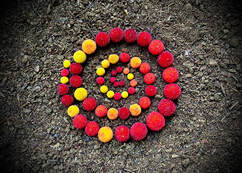


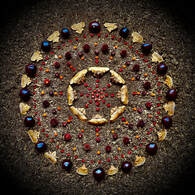


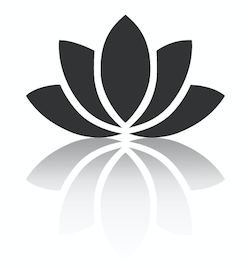

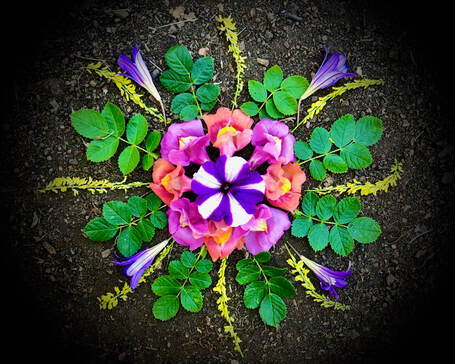
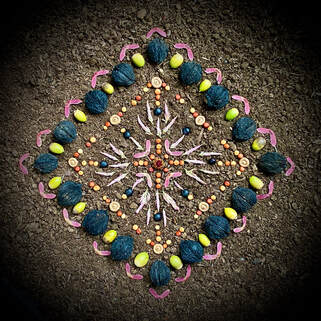
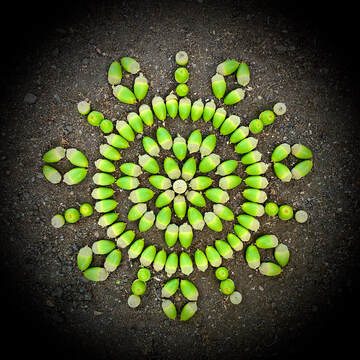
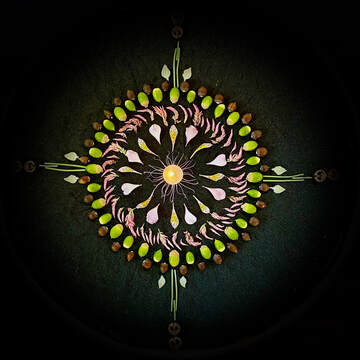

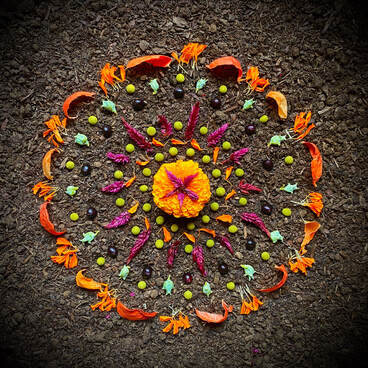
 RSS Feed
RSS Feed